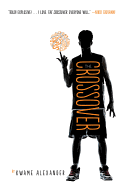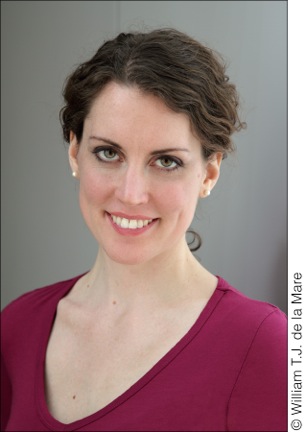 Vivien Shotwell is a classically trained singer with degrees from Williams College, the Yale School of Music and the Iowa Writers' Workshop, where she was an Iowa Arts Fellow. As an undergraduate voice student at Williams, Shotwell first sang the beautiful aria "Non temer, amato bene" ("Don't fear, greatly beloved"), which Mozart wrote for and performed with the young soprano Anna Storace, and knew she had to tell their story. The result is Vienna Nocturne (Ballantine Books, February 25, 2014), Shotwell's debut novel. A daughter of independent booksellers, Shotwell was born in Colorado, raised in Nova Scotia, and now divides her time between Halifax, Nova Scotia, and New Haven, Conn.
Vivien Shotwell is a classically trained singer with degrees from Williams College, the Yale School of Music and the Iowa Writers' Workshop, where she was an Iowa Arts Fellow. As an undergraduate voice student at Williams, Shotwell first sang the beautiful aria "Non temer, amato bene" ("Don't fear, greatly beloved"), which Mozart wrote for and performed with the young soprano Anna Storace, and knew she had to tell their story. The result is Vienna Nocturne (Ballantine Books, February 25, 2014), Shotwell's debut novel. A daughter of independent booksellers, Shotwell was born in Colorado, raised in Nova Scotia, and now divides her time between Halifax, Nova Scotia, and New Haven, Conn.
On your nightstand now:
It's quite a pile, I'm afraid! I have Alessandro Manzoni's I promessi sposi (The Betrothed), in Italian and English. It's a classic novel set in 1628, and was recommended to me by a friend at an opera workshop in Italy. My original plan was to read the translation alongside the original, but that proved beyond me, so my new plan is to read the English first. Also by my bed is War and Peace, which I first read when I studied in the Hague a number of years ago. I brought it with me then because I wasn't sure how many novels in English would be available in the Netherlands and I thought an extremely long book would tide me over for a few months. But then, for some reason, I didn't read the last 50 or so pages, and it's no good to say that one has read most of War and Peace. I also have an 18th-century erotic novel, Fanny Hill: Memoirs of a Woman of Pleasure by John Cleland, which I bought for research purposes; it was banned and widely pirated for about 200 years, and I can see why. Then I have the first volume of Robert Musil's The Man Without Qualities, to which I'm returning with new resolve after a long absence. I've almost finished reading a warmhearted comic novel with a delightful narrator, The Rosie Project by Graeme Simsion. Then there are a few books about 17th-century France, for research, and classic novels about marital infidelity that I've already read but enjoy having near: Gustave Flaubert's Madame Bovary (a book I disliked until I read the crystalline Lydia Davis translation), Edith Wharton's The Age of Innocence and Tolstoy's Anna Karenina. I grew up in a bookstore; I guess I just like to be surrounded.
Favorite book when you were a child:
I loved Arnold Lobel's Frog and Toad series, and the Betsy-Tacy series by Maud Hart Lovelace. I loved books by Laura Ingalls Wilder and Roald Dahl (especially Matilda and The B.F.G.), as well as The Maid of the North: Feminist Folk Tales from Around the World by Ethel Johnston Phelps, the Song of the Lionness series by Tamora Pierce, What Katy Did by Susan Coolidge and The Hero and the Crown by Robin McKinley. As a young child I listened to audiobook recordings of Jack London's The Call of the Wild and The Sea Wolf, though I skipped the violent parts. And I would sneak into my sister's room to read her copies of Wendy and Richard Pini's Elfquest, which she had forbidden me to touch.
Your top five authors:
This question makes me nervous! Not the top five but a top five: George Eliot, Jane Austen, John Donne, William Shakespeare and Chogyam Trungpa.
Book you've faked reading:
John Bunyan's The Pilgrim's Progress. (I did read parts of it!)
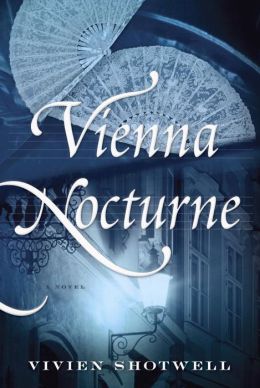 Book you're an evangelist for:
Book you're an evangelist for:
The Assassin's Cloak: An Anthology of the World's Greatest Diarists, edited by Irene and Alan Taylor, is a book to treasure. For friends interested in mindfulness meditation, I often recommend Turning the Mind into an Ally by Sakyong Mipham. I'm a frequent advocate of Esther Gokhale's 8 Steps to a Pain-Free Back, a beautifully illustrated book about restoring our easy and natural upright posture. And I can't stop talking about W.G. Sebald's The Rings of Saturn, a book whose cumulative power gutted me.
Book you've bought for the cover:
After tango class one night I stopped at the Book Trader Cafe in New Haven and happened across a book of exquisite black-and-white photographs of Nova Scotia, MacAskill: Seascapes and Sailing Ships by Wallace R. MacAskill.
Book that changed your life:
In third grade, I read The Bridge to Terabithia and remember being astonished that I could feel such emotion for fictional characters. I think that may have been a moment that made me want to become a writer. More recently I've been affected by nonfiction books: Tim Flannery's The Weather Makers, Marcus Rediker's The Slave Ship and The Amistad Rebellion, and Chogyam Trungpa's Training the Mind and Cultivating Loving-Kindness. While writing Vienna Nocturne, I was influenced by A Choice of Shakespeare's Verse, selected by Ted Hughes. I found this book many years ago in Foyle's bookstore in London, and my copy is so worn from use and travel that it's become discolored and tattered, split down the middle, and is missing the last pages and the back cover.
Favorite line from a book:
Among many, the last line of George Eliot's Middlemarch: "But the effect of her being on those around her was incalculably diffusive: for the growing good of the world is partly dependent on unhistoric acts; and that things are not so ill with you and me as they might have been, is half owing to the number who lived faithfully a hidden life, and rest in unvisited tombs."
Book you most want to read again for the first time:
Beloved by Toni Morrison.
Favorite historical novels not already mentioned:
Marguerite Yourcenar's knowledge of her historical subjects reached such depths that reading her books, I almost feel she lived in the times of which she wrote. She is most known for the remarkable Memoirs of Hadrian, and I also loved the novella An Obscure Man, which contains a beautiful extended passage about a Renaissance man hearing instrumental music for the first time ("...fountains melting into one another in the basins of a garden..."). Michael Shaara's masterful and harrowing depiction of the battle at Little Round Top in The Killer Angels took my breath away. The Blue Flower by Penelope Fitzgerald is a jewel-like example of cleanness and compression in historical writing. I also have recently enjoyed Master and Commander by Patrick O'Brian, The Leopard by Giuseppe Tomasi di Lampedusa, Someone Knows My Name by Lawrence Hill, The Known World by Edward P. Jones and The Garden of Evening Mists by Tan Twan Eng.
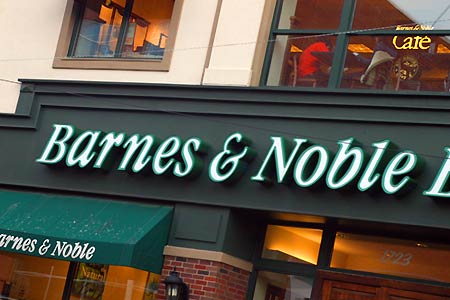 In the third quarter ended January 25, consolidated revenues at Barnes & Noble fell 10.3%, to $2 billion, and net earnings were $63.2 million, compared to a net loss of $3.7 million in the same quarter last year. Earnings were comfortably above analysts' estimates.
In the third quarter ended January 25, consolidated revenues at Barnes & Noble fell 10.3%, to $2 billion, and net earnings were $63.2 million, compared to a net loss of $3.7 million in the same quarter last year. Earnings were comfortably above analysts' estimates. 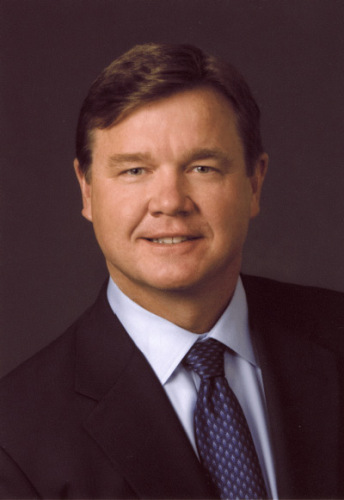 B&N CEO Michael P. Huseby commented: "During the third quarter, the company significantly improved its balance sheet and bottom line, while making real progress on our strategic priorities. Retail's core comparable store sales benefited from a strong title line-up, strong execution and an effective advertising campaign. College entered into the spring back-to-school rush and saw continued growth in its higher margin textbook rental business.... Nook losses narrowed significantly as we achieved our objective of selling through much of our pre-holiday device inventory, while managing promotions to optimize sales."
B&N CEO Michael P. Huseby commented: "During the third quarter, the company significantly improved its balance sheet and bottom line, while making real progress on our strategic priorities. Retail's core comparable store sales benefited from a strong title line-up, strong execution and an effective advertising campaign. College entered into the spring back-to-school rush and saw continued growth in its higher margin textbook rental business.... Nook losses narrowed significantly as we achieved our objective of selling through much of our pre-holiday device inventory, while managing promotions to optimize sales."






 Tattered Cover Book Store
Tattered Cover Book Store
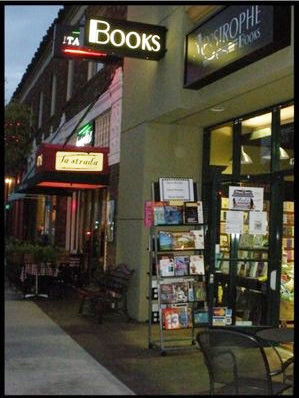 Apostrophe Books
Apostrophe Books Dutch bookstore chain
Dutch bookstore chain 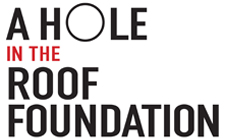 Author Mitch Albom has established the
Author Mitch Albom has established the  "I am blessed to have many Filipino readers, including many students, and I wanted to do something to help," he said. "Since I've been here, I've been emailing writers I know back home--and some I don't know--to ask if they would help, seeing as many of them are popular here, particularly with high school students."
"I am blessed to have many Filipino readers, including many students, and I wanted to do something to help," he said. "Since I've been here, I've been emailing writers I know back home--and some I don't know--to ask if they would help, seeing as many of them are popular here, particularly with high school students."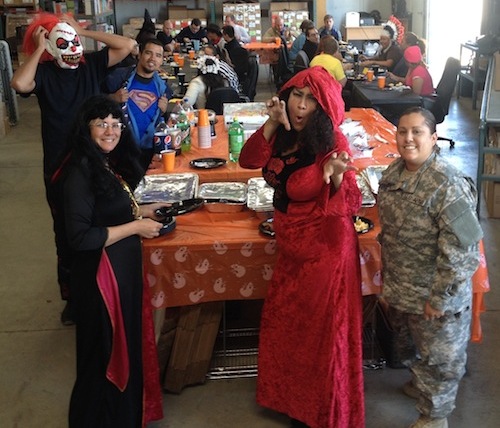
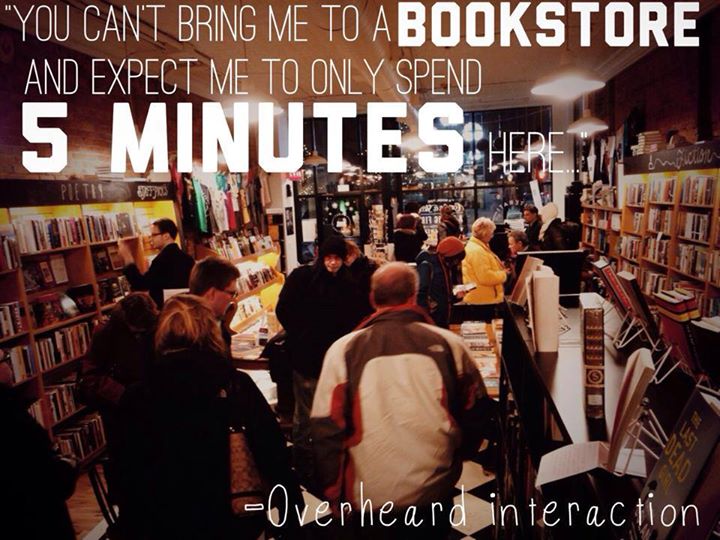
 Tiny Tokyo: The Big City Made Mini
Tiny Tokyo: The Big City Made Mini The Books for Oscar poll is based on the Academy Award nominations, "but focused on the books the nominated movies use as their source."
The Books for Oscar poll is based on the Academy Award nominations, "but focused on the books the nominated movies use as their source."  "Team Lannister roars" in a new set of
"Team Lannister roars" in a new set of  Vivien Shotwell
Vivien Shotwell Book you're an evangelist for:
Book you're an evangelist for: 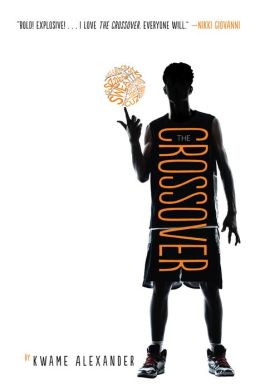 Kwame Alexander (He Said, She Said) introduces charismatic Josh Bell, a 12-year-old poet and ace basketball player. Josh narrates in stanzas, and starts off like a competitor in a poetry slam, proving he's both scholar and athlete with his sights set on Duke.
Kwame Alexander (He Said, She Said) introduces charismatic Josh Bell, a 12-year-old poet and ace basketball player. Josh narrates in stanzas, and starts off like a competitor in a poetry slam, proving he's both scholar and athlete with his sights set on Duke.